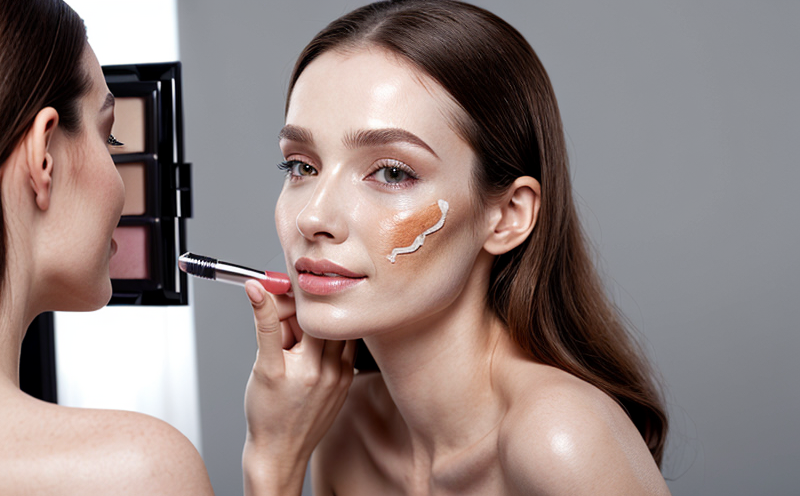Clinical Testing of Cosmetic Products for Atopic Skin
Atopic dermatitis (AD) is a chronic inflammatory skin condition that affects millions worldwide, characterized by dryness, redness, itching, and visible signs such as eczema. Given the unique nature of atopic skin, it’s crucial to ensure cosmetic products used on this population are safe and effective without exacerbating symptoms or causing adverse reactions.
Our clinical testing service is designed specifically for evaluating the dermatological efficacy and safety of cosmetics intended for use on individuals with atopic skin. This involves a series of controlled tests that simulate real-world usage conditions, ensuring product performance meets stringent regulatory standards.
The process begins with selecting appropriate subjects who have been diagnosed with atopic dermatitis. These participants undergo thorough medical evaluations to ensure they represent the target demographic accurately. Specimens for testing are carefully prepared under sterile conditions, and only hypoallergenic ingredients are used to minimize risk factors during application.
Instrumentation plays a vital role in this process; we use advanced optical imaging systems capable of capturing high-resolution images of treated areas over time. These images help assess changes in skin barrier integrity, moisture levels, pigmentation, and overall appearance. Additionally, patch testing is conducted to identify any potential allergens that may trigger adverse reactions.
Following application, participants are monitored closely for several days or weeks depending on the type of product being tested (e.g., moisturizers vs sunscreen). During this period, they keep detailed diaries documenting their experiences, noting improvements in symptoms like itching and redness, as well as any new issues arising due to use.
Atopic dermatitis is a complex condition influenced by various factors including genetics, environmental triggers, and lifestyle habits. Therefore, our testing protocol considers multiple variables when evaluating cosmetic products aimed at alleviating these challenges. By incorporating standardized metrics aligned with international guidelines such as ISO 21045:2021 for skin irritation tests or ASTM D3986-17e1 for photoprotection assessments, we provide robust evidence supporting claims made about the benefits of our clients' formulations.
Our expert team ensures every aspect of this testing process adheres strictly to best practices recommended by regulatory bodies like the European Commission and the FDA. The results generated from these tests are comprehensive yet concise, offering clear insights into how well a given cosmetic product performs on atopic skin without causing harm or irritation.
By partnering with us, you gain access to state-of-the-art facilities equipped with cutting-edge technology tailored specifically for dermatological testing. Our experienced professionals bring deep knowledge and expertise in both the science behind effective treatment options for atopic dermatitis and practical applications of those methods within cosmetic product development.
Why It Matters
The importance of conducting clinical tests on cosmetic products designed for individuals with atopic skin cannot be overstated. Given the prevalence and complexity of this condition, it’s essential that any new treatments or enhancements undergo rigorous evaluation to ensure they are both safe and effective.
- Ensures compliance with regulatory requirements
- Maintains brand reputation through consistent quality assurance
- Promotes consumer trust by delivering reliable results
- Aids in identifying potential risks early on, preventing costly recalls later down the line
In addition to regulatory compliance and brand protection, these tests also play a critical role in advancing scientific knowledge about atopic dermatitis. Understanding how different ingredients interact with affected skin can lead to breakthroughs in therapy development, ultimately improving outcomes for patients suffering from this chronic condition.





